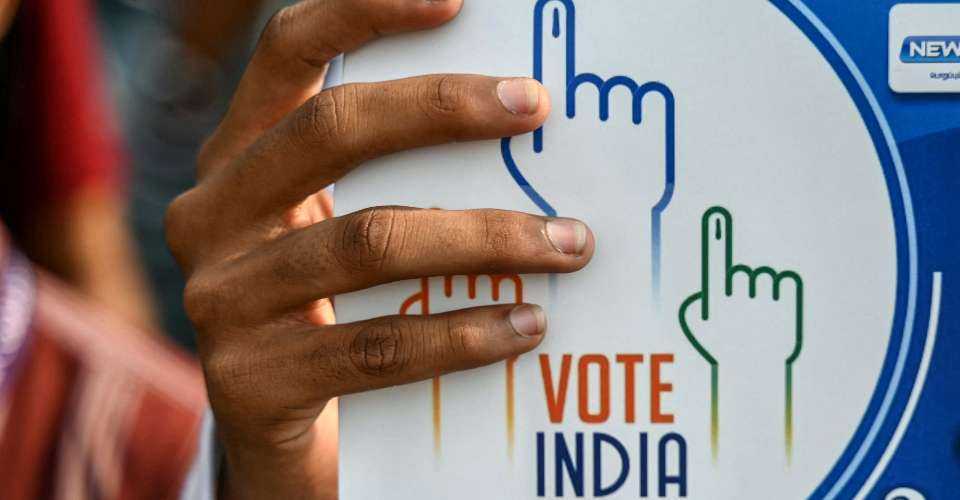
By : Dr. John Singarayar
A parliamentarian from Indian Prime Minister Narendra Modi’s party on March 9 sparked a nationwide debate by suggesting that his Bharatiya Janata Party (BJP) would seek to amend the nation’s constitution if it secured a resounding victory of 400 or more seats in the upcoming national election.
The statement by Anant Kumar Hegde, from southern Karnataka state, has ignited intense speculation. It also drew both praise and criticism, underscoring the significance of the pro-Hindu party’s electoral ambitions and its potential ramifications for India’s constitutional framework.
Hegde’s statement came amid fears among secularists that the BJP is determined to consolidate its power by reshaping India’s political landscape.
With India being the world’s most populous democracy, any proposed amendments to its constitution carry profound implications for the country’s governance, multi-religious identity, and future trajectory
Sensing trouble in Hegde’s statement, the BJP on March 10 said it was his personal opinion, not the party’s. The party also asked Hegde to clarify his statement.
However, at the heart of Hegde’s proclamation lies the BJP’s transformative agenda that seeks to redefine the contours of Indian nationalism and identity in alignment with its vision of Hindutva — the reassertion of Hindu cultural dominance and the marginalization of minority communities.
The Hindutva ideology has already polarized public opinion and raised concerns about the erosion of India’s secular ethos.
The BJP’s landslide victories in the 2014 and 2019 national elections have emboldened the party to pursue its ideology with greater vigor. Hegde’s assertion, therefore, must be viewed within the broader context of the BJP’s relentless pursuit of political hegemony and its unabashed embrace of majoritarian politics.
Critics of the BJP quickly denounced Hegde’s statement as an assault on the principles of constitutional democracy and pluralism. They argue that any attempt to amend the constitution in such a manner would undermine the foundational values of equality, secularism, and social justice upon which modern India was built.
Moreover, they contend that the BJP’s divisive agenda threatens to deepen social divisions, fuel communal tensions, and undermine the country’s democratic fabric.
On the other hand, supporters of the BJP have hailed Hegde’s assertion as a bold reaffirmation of the party’s commitment to its ideology. They argue that the constitution, although sacrosanct, should be open to revision and reinterpretation following the evolving aspirations and ethos of the Indian people.
For them, the prospect of a BJP-led government amending the constitution represents a historic opportunity to rectify perceived historical injustices, restore cultural pride, and usher in an era of genuine national resurgence.
However, amidst the cacophony of competing voices and conflicting narratives, it is imperative to recognize the sobering realities and inherent complexities that underpin India’s constitutional democracy.
The constitution, conceived by the founding fathers of independent India, embodies the collective aspirations and ideals of a diverse and pluralistic nation. It serves as the bedrock of India’s democratic edifice, providing a framework for governance, safeguarding fundamental rights, and ensuring the rule of law.
The constitution is not immutable and has been amended on numerous occasions since its adoption in 1950. However, the spirit of constitutionalism demands that any proposed changes adhere to the principles of deliberation, consensus-building, and respect for democratic norms.
Moreover, the BJP’s electoral aspirations, while formidable, are not guaranteed to materialize in the form of a supermajority in the Indian parliament.
India’s political landscape is characterized by its dynamism and unpredictability, with electoral outcomes often defying conventional wisdom and expectations. As such, the prospect of BJP securing 400 or more seats in parliament remains speculative and contingent upon a myriad of factors, including voter sentiment, coalition dynamics, and the performance of rival political parties.
Nevertheless, Hegde’s statement serves as a stark reminder of the BJP’s long-term vision and its determination to leave an indelible imprint on the trajectory of Indian politics. Whether or not the party succeeds in its electoral endeavors, its ideological influence and policy prescriptions have already left an indelible mark on India’s socio-political landscape.
As India stands at a crossroads, grappling with competing visions of nationhood and identity, the stakes have never been higher. The outcome of this ideological contestation will not only shape the destiny of India but also reverberate far beyond its borders, leaving an indelible mark on the global landscape of democracy and governance.
source : ucanews
